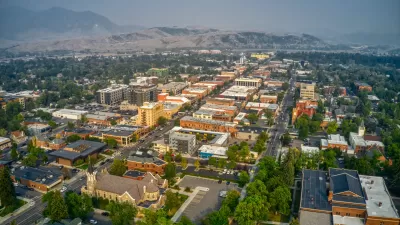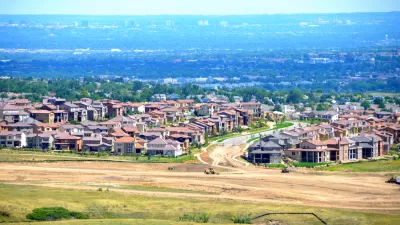Will Doig reflects on the scourge of public micromanagement that has "essentially become an official part of the urban planning process in many cities," and explores the psychology behind anti-development activism.
As a correction to the disastrous top-down "scientific" urban renewal projects of the middle of the last century, public participation in planning processes became enshrined in cities across the country. While perhaps a worthwhile correction at the time, Doig believes the abusive application of rules providing avenues for private citizens to challenge development have exceeded any theoretical good.
"These rules, designed to check the power of city officials, now perversely consolidate immense power in the hands of a few outspoken 'concerned citizens.' By dragging out the building process indefinitely, these people can make it so expensive that deep-pocketed luxury developers have a better chance of surviving it than anyone actually building affordable housing. Worst of all, these rules have created a new norm in which individual residents just assume that their personal opinions should carry great weight in routine planning decisions."
Doig explores the psychology behind those who resist any plans for change in the hope of revealing how planners might address their concerns.
"Oxford University researcher Toby Ord co-authored a 2006 paper titled "The Reversal Test: Eliminating Status Quo Bias in Applied Ethics" that helps explain anti-development activism. Status quo bias is an irrational desire for things to stay exactly as they are, even when change would be beneficial. It springs from a variety of factors, from risk aversion to fear of the unknown."
One solution to overcoming this bias may be for planners to develop mitigation measures for perceived negative impacts, rather than asking for approval or disapproval of a particular project. Another solution may simply be to reduce residents' power to oppose. According to Doing, "a few cities are starting to move in that direction. San Francisco has been struggling to reform its discretionary review process to make it less prone to abuse. And at Northeastern University in Boston, new software that could bring the public review process online could both increase transparency and broaden public input beyond just the anti-development gadflies who have time to go to years of public hearings."
Thanks to Daniel Lippman
FULL STORY: When the 1 percent say no

Planetizen Federal Action Tracker
A weekly monitor of how Trump’s orders and actions are impacting planners and planning in America.

Maui's Vacation Rental Debate Turns Ugly
Verbal attacks, misinformation campaigns and fistfights plague a high-stakes debate to convert thousands of vacation rentals into long-term housing.

Restaurant Patios Were a Pandemic Win — Why Were They so Hard to Keep?
Social distancing requirements and changes in travel patterns prompted cities to pilot new uses for street and sidewalk space. Then it got complicated.

In California Battle of Housing vs. Environment, Housing Just Won
A new state law significantly limits the power of CEQA, an environmental review law that served as a powerful tool for blocking new development.

Boulder Eliminates Parking Minimums Citywide
Officials estimate the cost of building a single underground parking space at up to $100,000.

Orange County, Florida Adopts Largest US “Sprawl Repair” Code
The ‘Orange Code’ seeks to rectify decades of sprawl-inducing, car-oriented development.
Urban Design for Planners 1: Software Tools
This six-course series explores essential urban design concepts using open source software and equips planners with the tools they need to participate fully in the urban design process.
Planning for Universal Design
Learn the tools for implementing Universal Design in planning regulations.
Heyer Gruel & Associates PA
JM Goldson LLC
Custer County Colorado
City of Camden Redevelopment Agency
City of Astoria
Transportation Research & Education Center (TREC) at Portland State University
Jefferson Parish Government
Camden Redevelopment Agency
City of Claremont





























